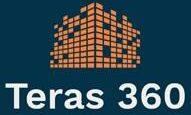About
Process Groups
The aim of Process groups is to:
Essential prerequisite to enable this is for the group to form into a group. The ‘strangerhood’ and anonymity in the group to be lowered. It is about private conversations in a public setting. Because private conversations in private settings has a pull to enabling the behavior, the nature of intimacy changes in a group and people see identification with one another. Groups increase that sense of identification. Its prime goal is to enhance effectiveness and remove dysfunctionality in any given space and one of the ways of doing this is by allowing the dysfunctionality to take centre stage. All identities are continuous and connected, nothing is stand alone, although the social setting subscribes to the idea of identity that is unique and separate. The three legs of the tripod are:
Enquiry is its main purpose and self-reflexivity, both individual and collective its prime value.

